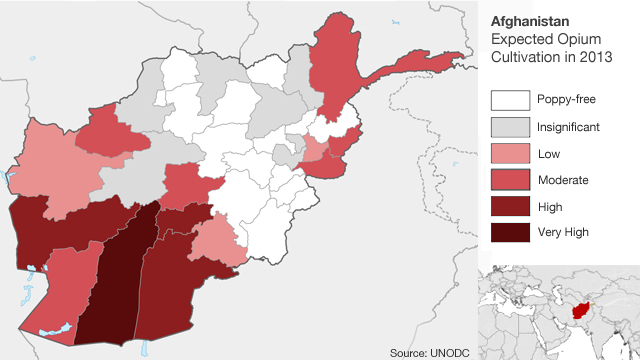The United Nations Office on Drugs and Crime says opium cultivation has increased in Afghanistan for the third year in a row, and the nation could account for as much as 90 percent of the world's supply of heroin.
The UN released the news in a report Monday saying opium production is particularly high in the most unstable areas of Afghanistan, where the U.S. troop surge helped beat back Taliban influence.
The report says insurgents took advantage of insecurity in those areas -- Helmand and Kandahar provinces, in particular -- to win over popular support and assist opium farmers with their crops.

It says poor weather and blight led to a reduction in supply of opium last year and correspondingly higher prices. The report notes that the higher price of opium makes it an even more attractive crop to grow now.
The UN says this is the third year in a row that opium poppy-growing has increased in Afghanistan, reversing gains from a decade of efforts by the Afghan government to reduce the nation's share in the drug trade.
The UN released the news in a report Monday saying opium production is particularly high in the most unstable areas of Afghanistan, where the U.S. troop surge helped beat back Taliban influence.
The report says insurgents took advantage of insecurity in those areas -- Helmand and Kandahar provinces, in particular -- to win over popular support and assist opium farmers with their crops.

It says poor weather and blight led to a reduction in supply of opium last year and correspondingly higher prices. The report notes that the higher price of opium makes it an even more attractive crop to grow now.
The UN says this is the third year in a row that opium poppy-growing has increased in Afghanistan, reversing gains from a decade of efforts by the Afghan government to reduce the nation's share in the drug trade.





